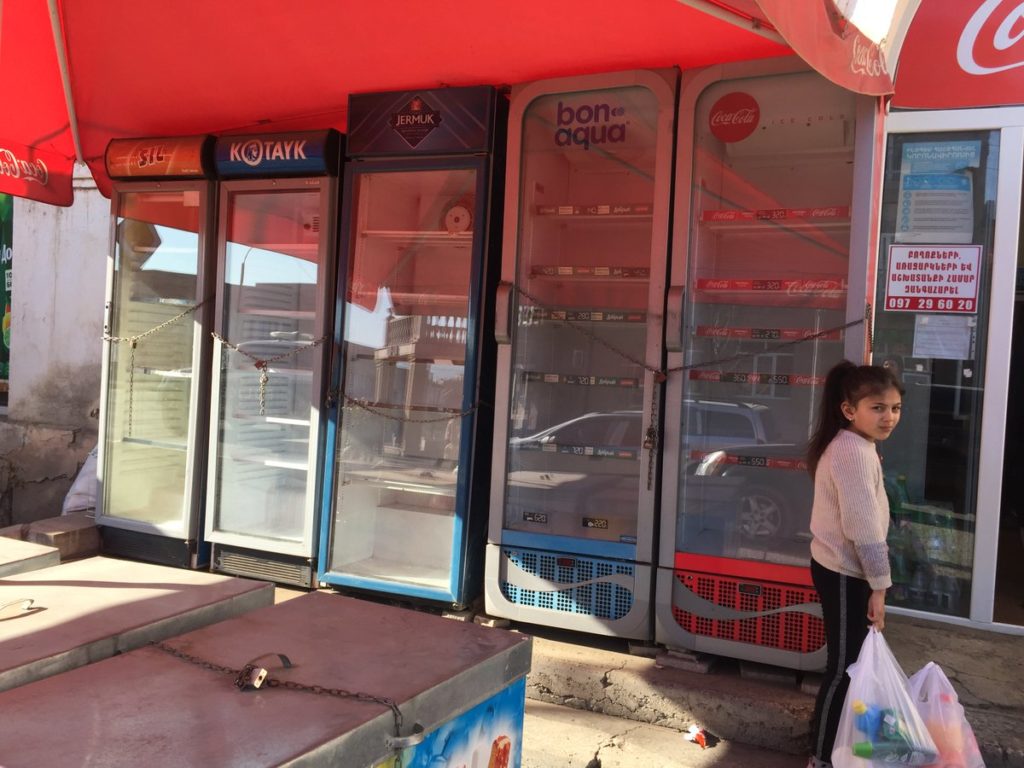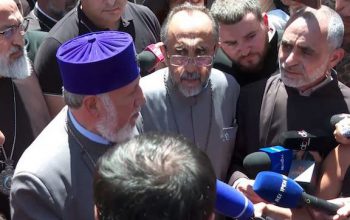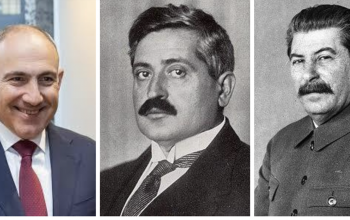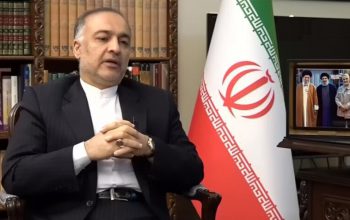By Lillian Avedian
Artsakh entered the new year under blockade, as Azerbaijan has kept the Lachin Corridor closed for over three weeks.
The Lachin Corridor, the sole route connecting Artsakh with Armenia and the rest of the world, has been closed since December 12. The corridor, called the “road of life” by locals, is typically used to transport 400 tons of food and medicine to Artaskh from Armenia every day, according to Artsakh authorities. Artsakh now faces acute shortages of basic necessities.
Grocery stores have almost entirely run out of sugar, salt, wheat, vegetables and fruit as of December 28, according to Artsakh media. Stores are facing shortages of rice, oil, eggs, cheese and flour.

“The humanitarian crisis in Nagorno-Karabakh is worsening day by day,” the Ministry of Foreign Affairs of Armenia said in a January 3 statement. “120,000 people became de facto prisoners.”
The Lachin Corridor was shut down by a group of government-sponsored Azerbaijani protesters posing as environmental activists. They have pitched tents along the Stepanakert-Goris highway to demand that the Russian peacekeeping force allow them to inspect what they call “illegal mining” in Artsakh.
Artsakh authorities have said that the mining industry operates “in line with the highest international standards.” Yet on December 28, the government of Artsakh announced that it would temporarily suspend its mining operations. “Taking into consideration the unhealthy environment created by the ‘eco-activists’” and “their attempt to mislead the international community,” the local authorities decided to close the mines until an international inspection is conducted.
The government of Azerbaijan has denied that the protests are preventing travel along the Lachin corridor or precipitating a humanitarian crisis. The Azerbaijani Foreign Ministry said in a January 4 statement that vehicles belonging to the International Committee of the Red Cross “pass through the road without hindrance.”
Only one shipment of humanitarian aid along the Lachin Corridor has been confirmed. The ICRC delivered 10 tons of humanitarian cargo to Artsakh from Armenia on December 25. Artsakh authorities said that the aid would suffice for 10 days. Meanwhile, about a dozen patients, accompanied by the ICRC or by Russian peacekeepers, have been transferred from Artsakh to Armenia for treatment since the start of the blockade.
Families have also been separated by the road closure. About 1,000 people have been stranded along the Lachin Corridor and prevented from returning home to Artsakh since December 12.
According to the ceasefire agreement ending the 2020 Artsakh War, Azerbaijan “guarantees traffic safety along the Lachin Corridor of citizens, vehicles and goods in both directions.” Russian peacekeepers were deployed to the Lachin Corridor to ensure its security under the agreement.
The Russian peacekeeping mission has faced criticism for failing to reopen the corridor or remove the Azerbaijani protesters. Armenian Prime Minister Nikol Pashinyan called the peacekeeping force a “silent witness to the depopulation of the Nagorno-Karabakh region, which is becoming more and more visible.”
“If Russia is unable to ensure stability and security in Nagorno-Karabakh for objective or subjective reasons, I think it should organize a discussion in the UN Security Council and endow the Russian peacekeeping force in Nagorno-Karabakh with a UN Security Council mandate or raise the issue of sending additional multinational peacekeepers to Nagorno-Karabakh,” Pashinyan said during a cabinet meeting on December 29.
The Russian peacekeeping mission has repeatedly said that it is conducting negotiations with representatives of Armenia and Azerbaijan to reopen the corridor. No details of these negotiations have been released.
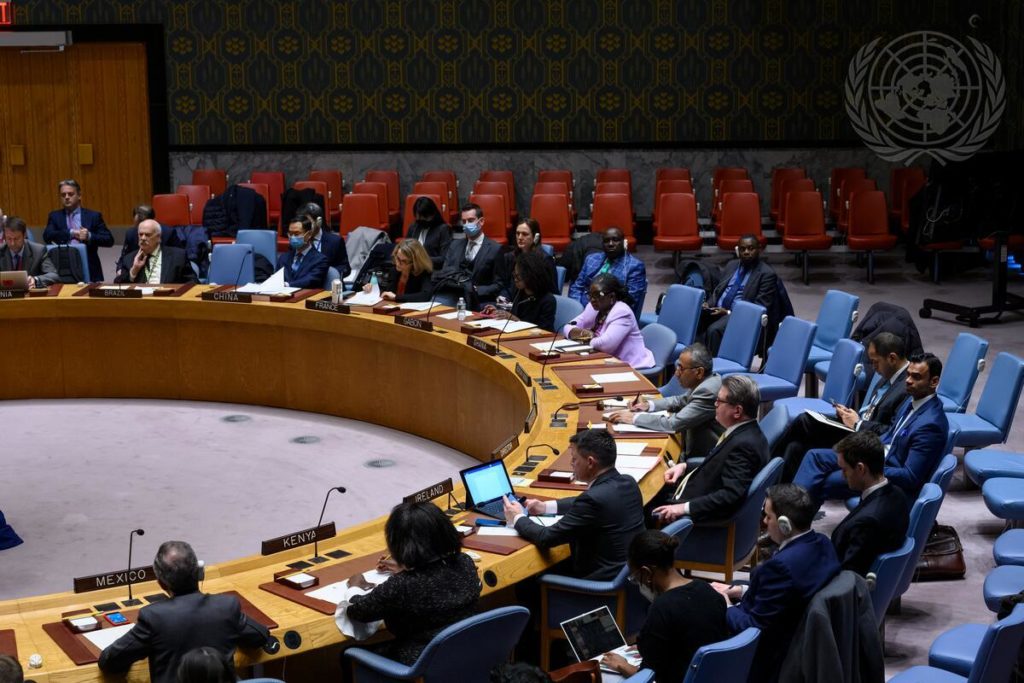
Armenian media also blamed Russia for the failure of the UN Security Council (UNSC) to adopt a resolution regarding the closure of the Lachin Corridor.
France and the United States called on Azerbaijan to reopen the corridor during a UNSC session convened on December 20 at the request of the government of Armenia.
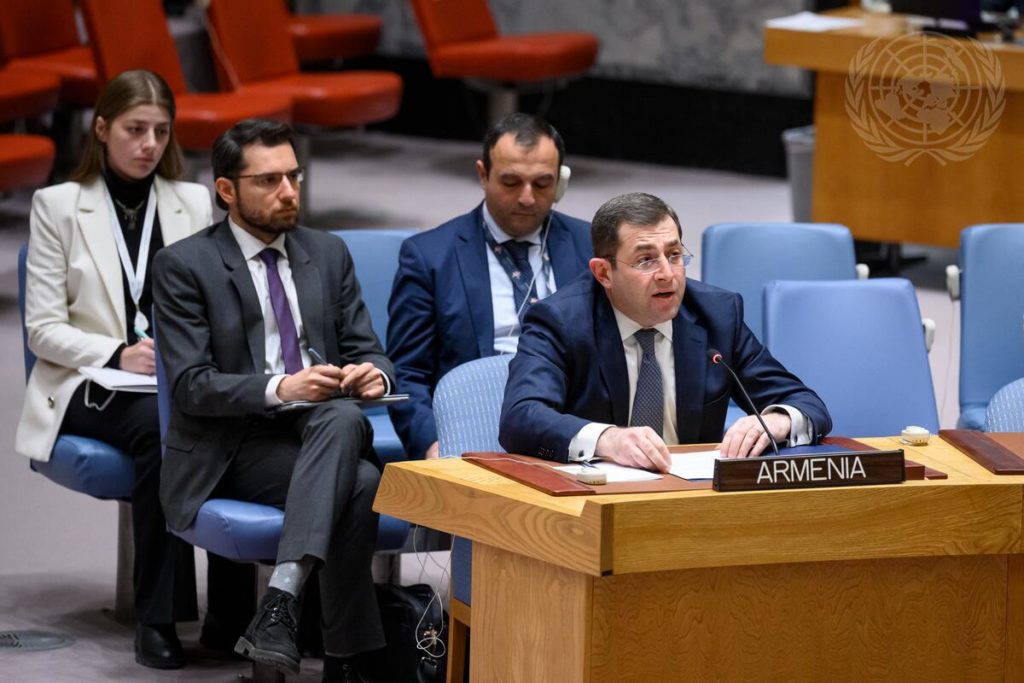
Armenian and Azerbaijani media outlets reported conflicting accounts of the subsequent negotiations on a statement. Armenian media said that the draft resolution failed after Russia introduced amendments at the last minute, “knowing very well that they would not be accepted by other members.”
Azerbaijani media said that France tried to “push through its pro-Armenian statement.” Yet, in the 10 days after the December 20 session, France abandoned the statement after it was opposed by Great Britain, the United Arab Emirates, Russia and Albania.
“Today, France lost another battle to Azerbaijan in UN Security Council in a failed attempt to push biased pro-Armenian UNSC statement on Lachin which triggered harsh reaction from other UNSC members,” Azerbaijan’s ambassador to Belgium tweeted on December 30. “Words of gratitude go to Albania, Russia, UAE & UK! A great job of AZ diplomats!”
Russia denied that it was responsible for the UNSC’s failure to adopt a statement. Dmitry Polyanskiy, the first deputy Russian ambassador to the United Nations, said that France rejected the majority of Russian proposals.
Polyanskiy said that Russia “from the very beginning was working constructively” on drafting a statement, a process that it said was coordinated by France at Armenia’s request.
“We firmly believe that the Council’s reaction should help to find a compromise and resume the peace process, without labeling any of the parties,” Polyanskiy wrote on Telegram. “Westerners were more concerned about adopting any Security Council product rather than resolving the conflict situation.”
The Armenian Foreign Ministry expressed gratitude for the “publicly expressed and clear calls by the vast majority of the Security Council members to end the blockade of the corridor by Azerbaijan” in a January 3 statement. The Foreign Ministry particularly welcomed the efforts by France to adopt a statement about the corridor closure.
The article was originally published in The Armenian Weekly.

